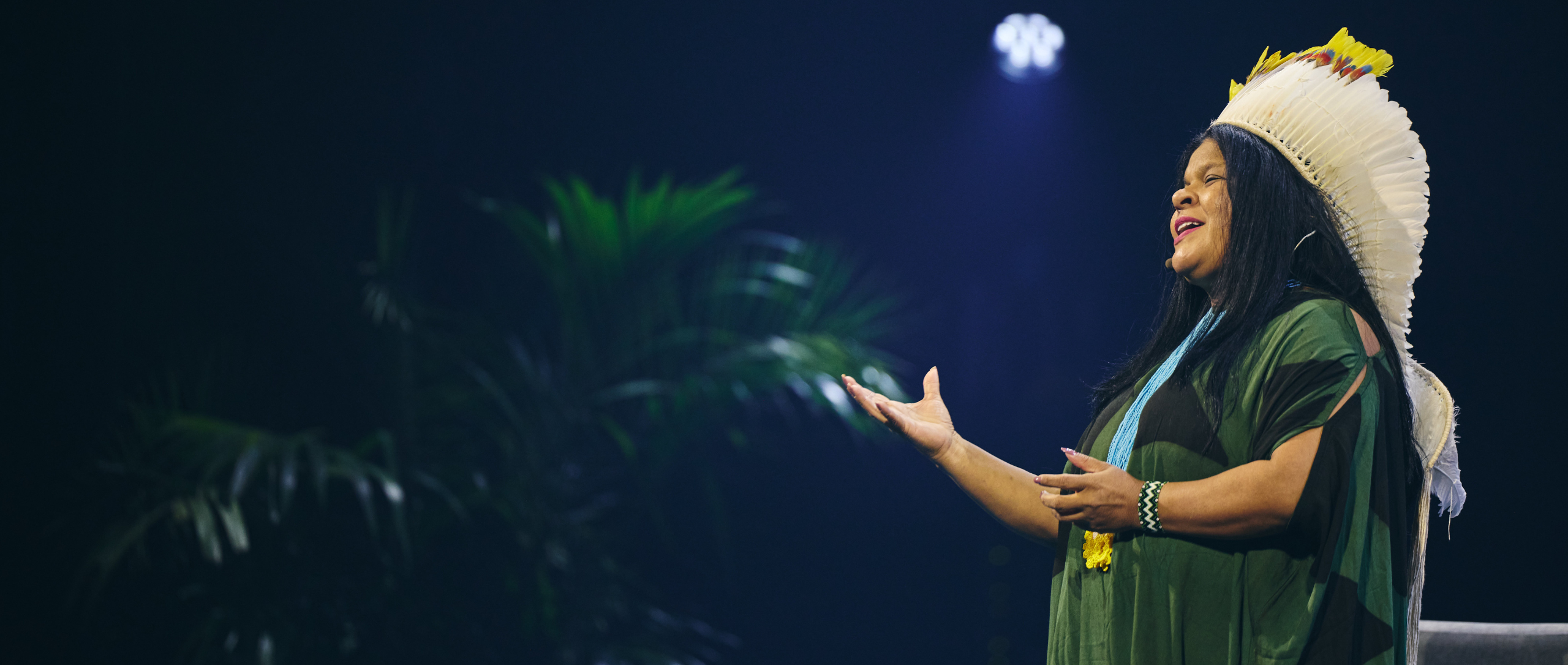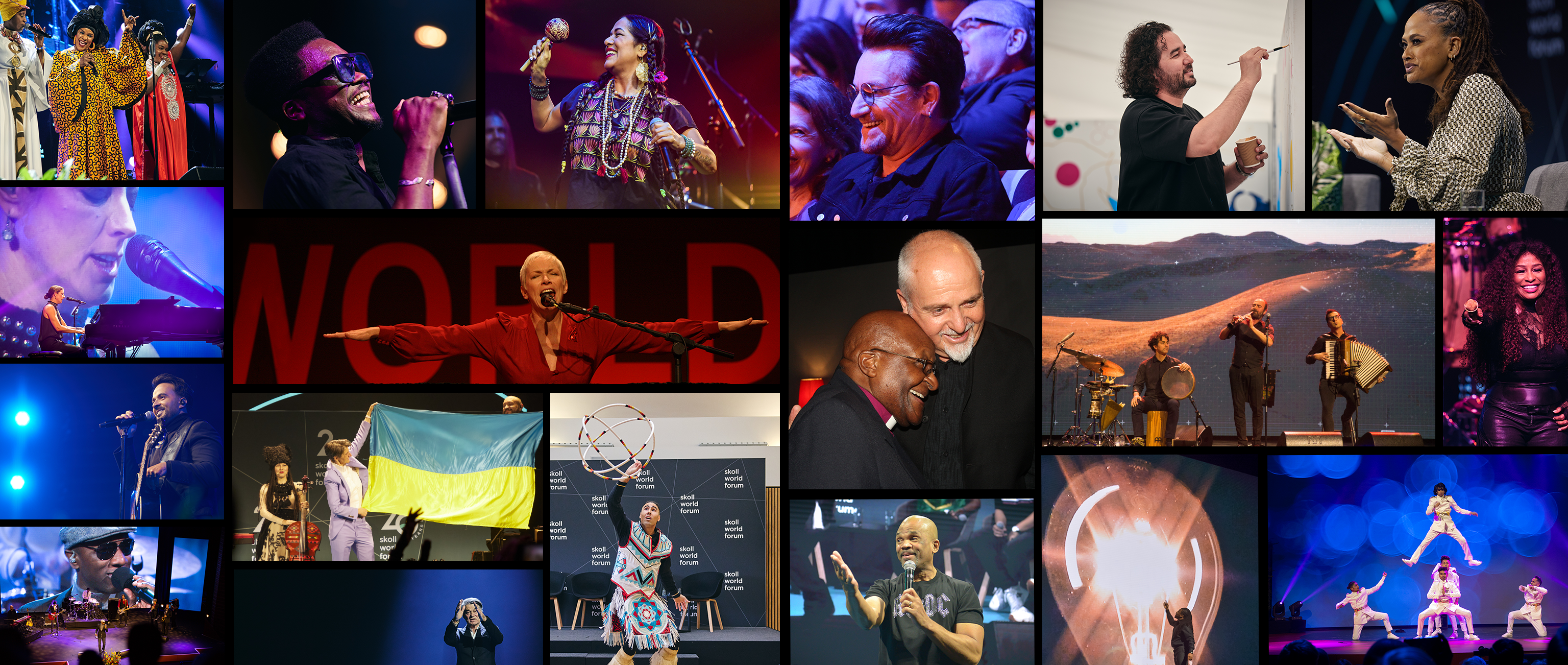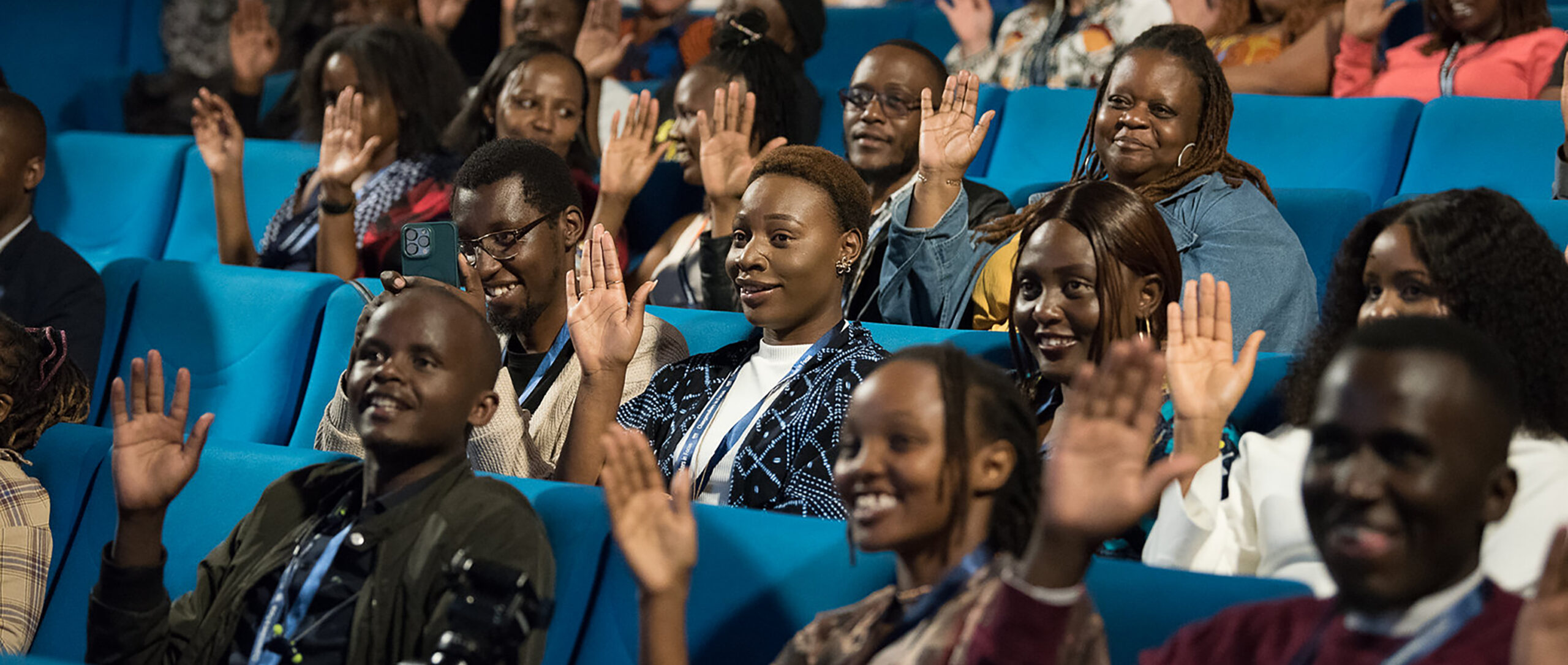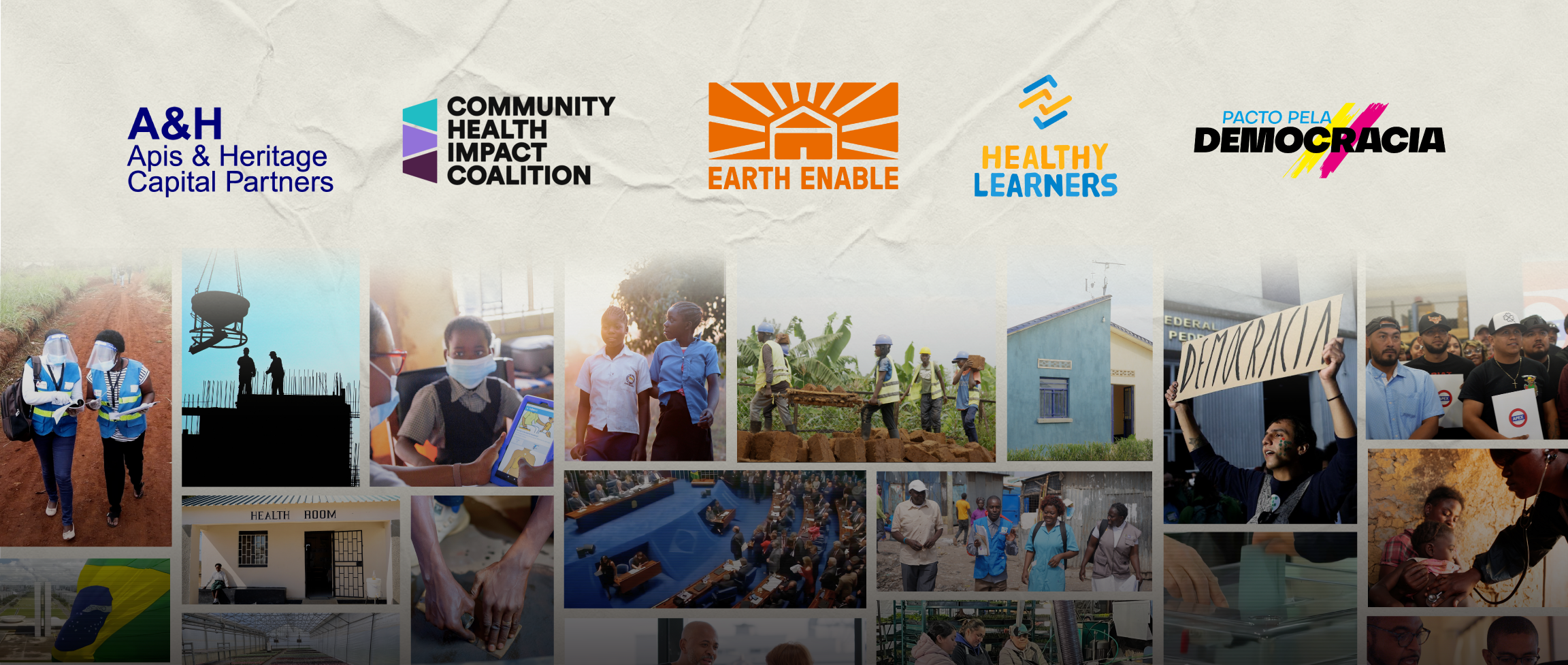Collaborative Action in a Polarized World: Themes at the 2024 Skoll World Forum
In our efforts to advance large-scale progress, how do we collaborate in times of conflict and opposition? The social impact community came together in April at the 2024 Skoll World Forum amid heightened global tensions and centered on common values and bold solutions for moving forward in solidarity.
In Oxford, we welcomed a record number of delegates as 1,500 change leaders gathered to learn, connect, and share the impact of their work. Speakers and delegates from more than 80 countries doubled down on the Forum as a space for radical imagination paired with urgent and practical action.
Many conversations turned to signs of polarization and unrest worldwide. As 50 countries—with half the world’s population—head to polls in a historic year of elections, democracy faces threats from authoritarianism, rising disinformation, and shrinking civic spaces. Climate change continues to widen social and economic gaps laid bare by the pandemic. And disparate responses to conflict in places like Ukraine, Gaza, and Sudan are straining regional ties and international alliances.
As we convened people working on bold solutions to these problems, we heard themes of shared humanity and collaborative action emerge. Social and political leaders on the main stage called for diverse approaches to collaboration, and many breakout sessions with proximate changemakers explored the power of collective truth in the face of divisiveness.
We left the 2024 Skoll World Forum energized and hopeful. To explore or revisit the spirit of this year’s Forum, watch the inspiring highlights video below and read on for a window into how this year’s themes showed up in the program.
Collaborative Action is Diverse, Proximate & Hopeful
In this year’s plenaries, social and political leaders stressed the importance of multistakeholder collaboration—working among sectors, governments, and proximate leaders—with room for a diversity of human backgrounds and worldviews.
When it comes to the pressing work of climate justice, this means centering the needs and expertise of local communities who are best placed to lead on strategy and implementation, as Indigenous peoples steward more than 80 percent of the world’s remaining biodiversity.
Sonia Guajajara, the first-ever minister of Indigenous peoples, framed the work to protect Brazil’s ecosystem not only as a national effort, but a global challenge. Because of the significance of the biodiversity that the world needs to protect in Brazil, the ministry there would be well positioned to influence environmental policy development worldwide. Guajajara called for widespread support to “reforest the minds” of people all over the world with Indigenous worldviews that can serve as a cornerstone of climate emergency response.
“Culture is coded wisdom,” said Kenyan environmentalist and activist Wanjira Mathai of Guajajara’s work to center traditional knowledge in contemporary activism.
Turning to climate financing, Mathai urged funders to support low-carbon, climate-resilient economies around forests to catalyze meaningful progress toward a more sustainable future. She also addressed polarity in the climate sector with a reminder that the competing agendas of development and climate justice can join together for a common purpose: shared prosperity.
And there was a call for the values of our leaders to reflect our shared humanity. Former Prime Minister of New Zealand Jacinda Ardern revealed to Forum delegates that while in office, she often felt pressured to downplay qualities like kindness for fear of appearing weak.
In conversation with TEDWomen’s Pat Mitchell, Ardern named that we often teach children the values we want to see in the world—kindness, curiosity, and generosity—while holding leaders to incongruent standards. She called for a wider expression of humanity from world leaders, and optimism about the possibilities: “Hope dies when we lose our sense of expectation.”
Defending Truth & Building Trust in Times of Crisis
Against the backdrop of growing threats to truth and information in civil and civic spaces, many of the Forum’s breakout sessions explored ways to protect the solidarity needed for ongoing change. Panels examined the power of collective truth—especially from and among proximate voices—to unlock the trust, resources, and cooperation that ultimately drive progress.
Speakers shared their work in storytelling, civic engagement, information integrity, and more to highlight progress and solutions. Here are key takeaways from three sessions at the Forum:
Reclaiming Truth in the Age of Information Disorder
“You can’t solve any crisis before solving the information crisis,” said journalist Patricia Campos Mello, quoting former U.S. Vice President and Skoll World Forum speaker Al Gore. Amid concerns that policymakers and technology companies aren’t doing enough to address online hate, disinformation, and threats to human rights, panelists focused on trustworthy information and forward-looking policies and regulation. Watch the full session here.
-
- Addressing mis- and disinformation requires trust-building within and between communities and news platforms. Content moderation and fact-checking tools can empower users and reduce the spread of false information. Organizations like Meedan—a 2024 Skoll Awardee—are working to empower local journalists and NGOs to prevent disinformation.
- Now more than ever, journalists and human rights defenders play a vital role in safeguarding truth and promoting accuracy. And legislation against hate speech or false information could have a positive impact on the information environment.
Innovating Everyday Democracies that Value Choice
Even as it strives to be free, fair, and inclusive, democracy still leaves behind far too many people, according to panel moderator Felipe Estefan. Estefan fosters civic engagement in Latin America for Luminate, and secures funding for digital rights in the region.
How then do evolve democracies that trust all participants to lead the change? “We should open the door [to improvement],” said Ian Bassin, executive director of Protect Democracy, a 2023 Skoll Awardee and nonpartisan group focused on free and fair elections. “Then you’re admitting that choice is a value. Democracy is about having choices, and we should be careful not to throw the baby out with the bath water while we seek to improve it.” Watch the full session here.
Holistic Climate Financing Centered on Trust & Proximity
As climate change affects regions and sectors worldwide, leaders from nonprofits and philanthropy explored funding-related needs and challenges, including the barriers caused by disinformation. Panelists called for holistic funding and trust–building with stakeholders, as grants for one issue and place can fail to meet complex global challenges. Watch the full session here.
-
- Building trust is essential for impactful, sustainable climate financing in the future. Climate justice workers need funders who trust their partners to use resources wisely. They also face challenges from public mistrust or denial of climate change. Pushing back against disinformation and the politicians who ignore or deny climate change will be essential for long-term impact.
- The urgency of climate change calls for targeted and holistic financing and implementation pathways. This includes mobilizing funding from national donors, philanthropy, multilateral institutions, and NGOs, in addition to accessing commercial funding and credit.
- Effective climate change work must be driven by the people and communities most affected by climate change. These groups and their communities have a long-standing history caring for lands with rich biodiversity, and their voices should be included in decision making spaces.
Embracing the Creativity of Social Change
In addition to learning and connection, the Forum is a space for transformative performances by global artists who engage in activism. Their creative expression inspires the healing and reflection needed for the challenging work of social change.
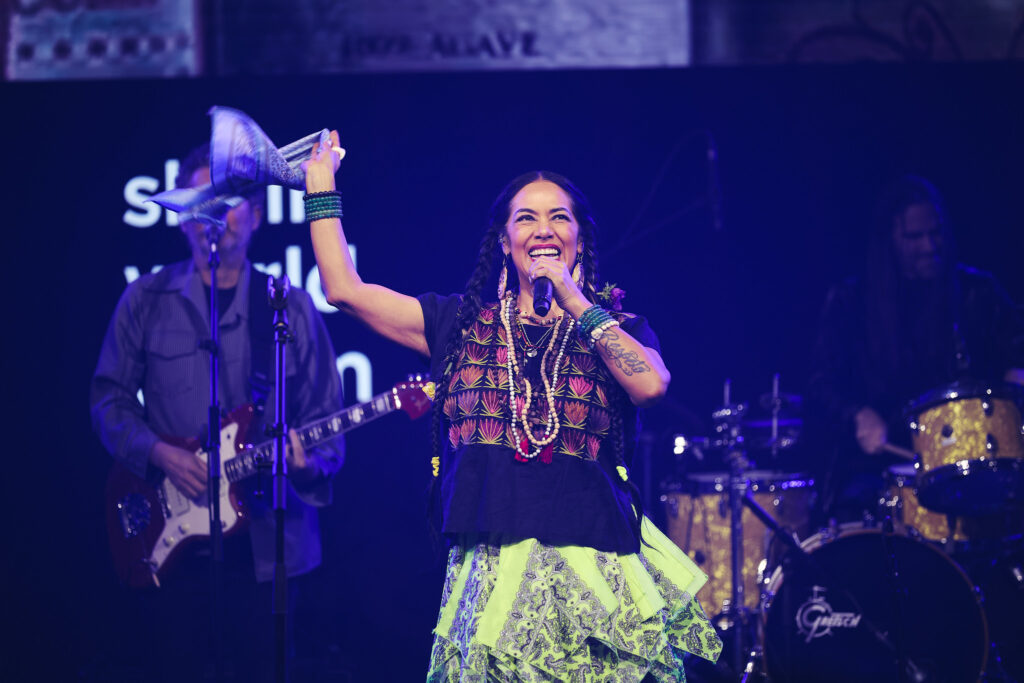
This year, we were reinvigorated by the music of Lila Downs and Yemi Alade, among others, who advocate for human rights in their respective countries of Mexico and Nigeria.
We also recommend watching poet and philosopher David Whyte’s moving tribute to long-time Skoll World Forum MC and community member Jess Search, a tireless advocate of documentary filmmaking whose bold vision and humor had an impact on many of us.
If you caught the tribute but missed Whyte’s breakout session, watch it here for one of this year’s most popular talks: an exploration of identity that invites us to ask “beautiful questions” about the difficult and meaningful work of social change.
Looking for more inspiration? Explore this year’s program in the 2024 video archive for the entire lineup of sessions and performances.
